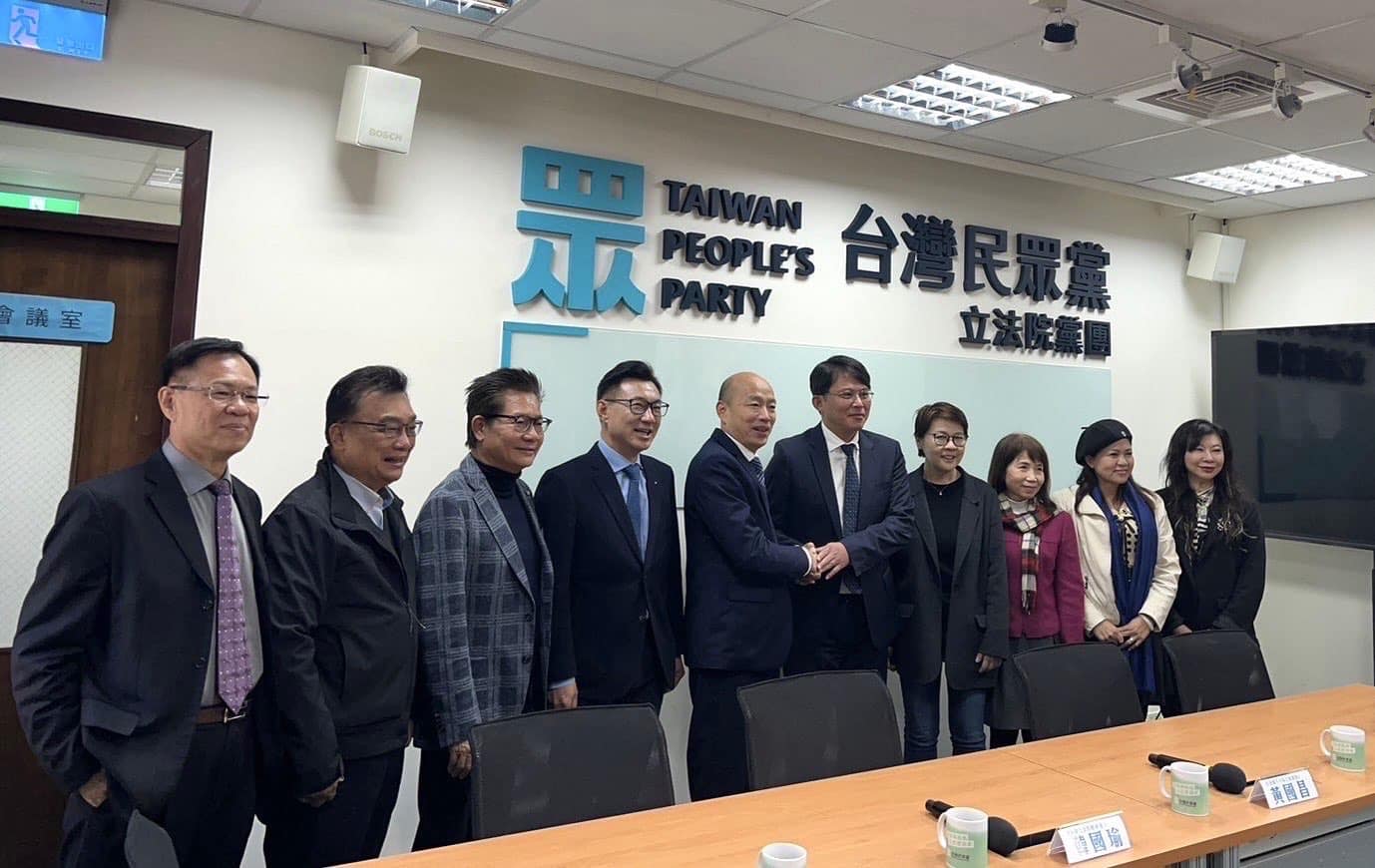by Brian Hioe
語言:
English
Photo Credit: Han Kuo-yu/Facebook
AFTER MEETING WITH both the DPP and KMT in the preceding days, the TPP announced this afternoon that its eight legislators would be voting for Huang Shan-shan for the president of the legislature. This means that the TPP has declined to side with either the DPP or KMT when it comes to voting for the Legislative Yuan president.
The DPP aims for current Legislative Yuan president Yu Shyi-kun to continue serving in his post. Yu is running on a joint ticket with Taichung legislator Tsai Chi-chang, who is the current vice president. By contrast, the KMT has aligned behind 2020 presidential candidate Han Kuo-yu as its candidate, who is running alongside Johnny Chiang.
The Han-Chiang ticket may be aimed at a similar effect to the KMT’s 2024 presidential ticket, in pairing a moderate candidate with a hardline one. During his stint as chair, Chiang is generally understood as one of the leaders of the KMT who sought to reform the party to change its pro-China image. On the other hand, Han’s popularity in spite of his loss by large margins in the 2020 presidential election and subsequent recall from his position as mayor of Kaohsiung is thought to be due to what extent he leaned into ROC nationalism–something that has continued to earn him the loyalty of hardliners in the KMT.
It proves somewhat surprising for the TPP to refuse to endorse either the DPP or KMT, but to instead emphasize that it would be backing Huang. Huang did not publicly express interest in the position of Legislative Yuan president, but was number one on the TPP party list.
 The TPP meeting with the KMT. Photo credit: Han Kuo-yu/Facebook
The TPP meeting with the KMT. Photo credit: Han Kuo-yu/Facebook
Yet the TPP faced challenges with regard to its choice of whether to side with the KMT or DPP. If the TPP simply sided with the KMT on every issue, it would run the risk of becoming a “little Blue” party that was substantively no different than the KMT except for being a smaller party. If the TPP came to be perceived as simply a sidekick party of the KMT, the party is unlikely to have a long-term future. In such a situation, the TPP would likely face a fate similar to that of the NPP, which disintegrated in the lead-up to the 2020 elections over the question of whether to openly endorse the DPP or not.
As such, the TPP deciding to back Huang for the Legislative Yuan speaker is with the aim of maintaining its separate identity from the KMT and DPP alike. Indeed, while the KMT has sought to pressure the TPP into firmer cooperation, the TPP has declined to side with the KMT on some initiatives, such as the KMT’s calls to revive the Special Investigation Division.
However, the end result will be that, as the KMT has one more seat than the DPP in the legislature, if the KMT party caucus all votes together. Han will become the president of the Legislative Yuan.
The DPP leaned into attacks over the possibility of Han becoming president of the Legislative Yuan in campaigning ahead of the vote. After all, while his popularity among deep Blues is not to be dismissed, Han’s reputation fares less well with members of the general public. This is not only over his political views, but over his reputation for mismanagement and poor governance. Han was often criticized for missing meetings or days of work during his period as mayor of Kaohsiung because of drinking, for example. Given that the president of the legislature needs to be present for the stable operation of the legislature, there could be potential for disruption if Han becomes the Legislative Yuan president, then. Although the KMT leadership decided to embrace Han in naming him the KMT’s number one party list candidate, suggesting that it hoped to run for him for Legislative Yuan president, even if this ploy served to mobilize deep blue voters, it could still ultimately backfire for the KMT.
Either way, questions generally remain about how the KMT party caucus will operate in the new legislature. Sharp divides in the KMT that were visible during the election have not been mended. Indeed, the Han-Chiang ticket was challenged by no less than Hualien legislator Fu Kun-chi in the past weeks. In spite of Fu’s longstanding reputation for political corruption, Fu still sought to throw his hat into the race, possibly as part of an attempt at deal-making. After being talked out of his challenge, Fu will now take up a position as convenor of the KMT party caucus, though Fu’s reputation may not reflect well on the KMT.

